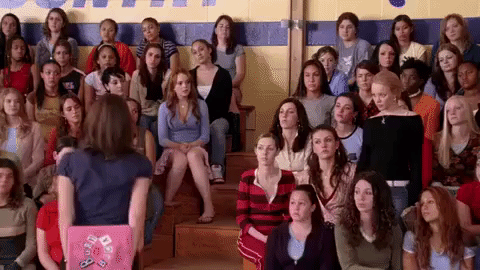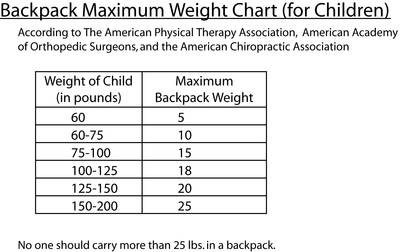Here are some guidelines to prevent spinal curvatures and back pain in children.At my daughter’s last check-up, her doctor noted that she had a slight spinal curvature. “Nothing drastic,” she said brusquely. “Just a slight curve. See how her left shoulder is higher than her right?”
I saw. The doctor was right, her right shoulder was lower but not drastically so. It was also the shoulder she often had her heavy, overloaded backpack slung across.
Her school didn’t provide lockers, so the 6th graders had to carry all of their books from class to class. Sixth grade being the beginning of middle school, their book load was significantly higher than in years past. Her backpack was 50 pounds easy, and she carried it around (often on one shoulder) for eight to nine hours a day. According to Scott Bautch, the president of the American Chiropractic Association’s Council on Occupational Health, she’s lucky it wasn’t more severe. He recently spoke to Healthy Way about the risks of overloaded backpacks and the maximum weight children should carry.
“For younger children, backpacks are designed to carry about 10 percent of their weight, up to 15 percent for kids over 12 years old,” Bautch says. “If the backpacks are carrying more weight, they would be designed differently to shift the weight [to kids’] hips.”
But Bautch says that the average fourth-grader carries an incredible 33 pounds — about a third of their body weight — which can lead to injuries and musculoskeletal disorders. To put that in perspective, it’s the equivalent of a 150-pound adult carrying around a 50-pound weight every day, and that’s a real issue. Per the U.S. Consumer Product Safety Commission, as many as 7,300 kids per year end up in emergency rooms due to backpack-related injuries, reports CNN.
It’s literally insane that over 7,000 kids end up in the ER for backpack-related injuries. Sure, some of them are probably freak “got strangled in backpack straps” injuries, but the majority are probably caused by kids being forced to carry around weights that their bodies can’t sustain. Luckily, Sienna’s new school provides lockers and her backpack is mercifully lighter these days. If she were still at the no-locker school, I would absolutely take them copies of the numerous reports on backpack injury. As it is, I’m still going to make sure my kids aren’t overloading or improperly wearing their backpacks.
Kids shouldn’t carry a backpack that weighs more than 10 percent of their body weight, but raise your hand if percentages aren’t your thing.

For the rest of us, Noble Choice Chiropractic has compiled a handy-dandy chart to check your kids backpack-to-weight ratio:

You might want to bookmark this for yourself, too, since I had no idea that no one should carry more than 25 lbs in a backpack. Whoops.
Other backpack safety tips include using both straps (looking at you, Sienna), making sure the straps are padded, keeping the straps tight enough that the backpack sits snugly against your child’s back without pulling their shoulders back, never letting the backpack hang lower than the hollow of your child’s back, and packing it properly.
Oh, what’s that you say? You didn’t know there was a proper way to pack a backpack? Me neither, but it turns out I’ve been doing it right more or less intuitively all along, so you probably have been as well. The heavier books go in the main pocket so they sit nearest the back, reducing strain on the shoulders. The rest is mostly up to you, but remind your kids that all those pockets are there for a reason. They help distribute weight more evenly, so fill them up — just don’t fill them too full!
If all else fails, remind your kids that their arms work too. They can carry a heavy book or two if necessary to keep their backpack at a safe weight. They might complain, but then you can just show them a picture of scoliosis and I bet they’ll carry the books happily.

Read more:
How to wear a backpack like a grown-up








